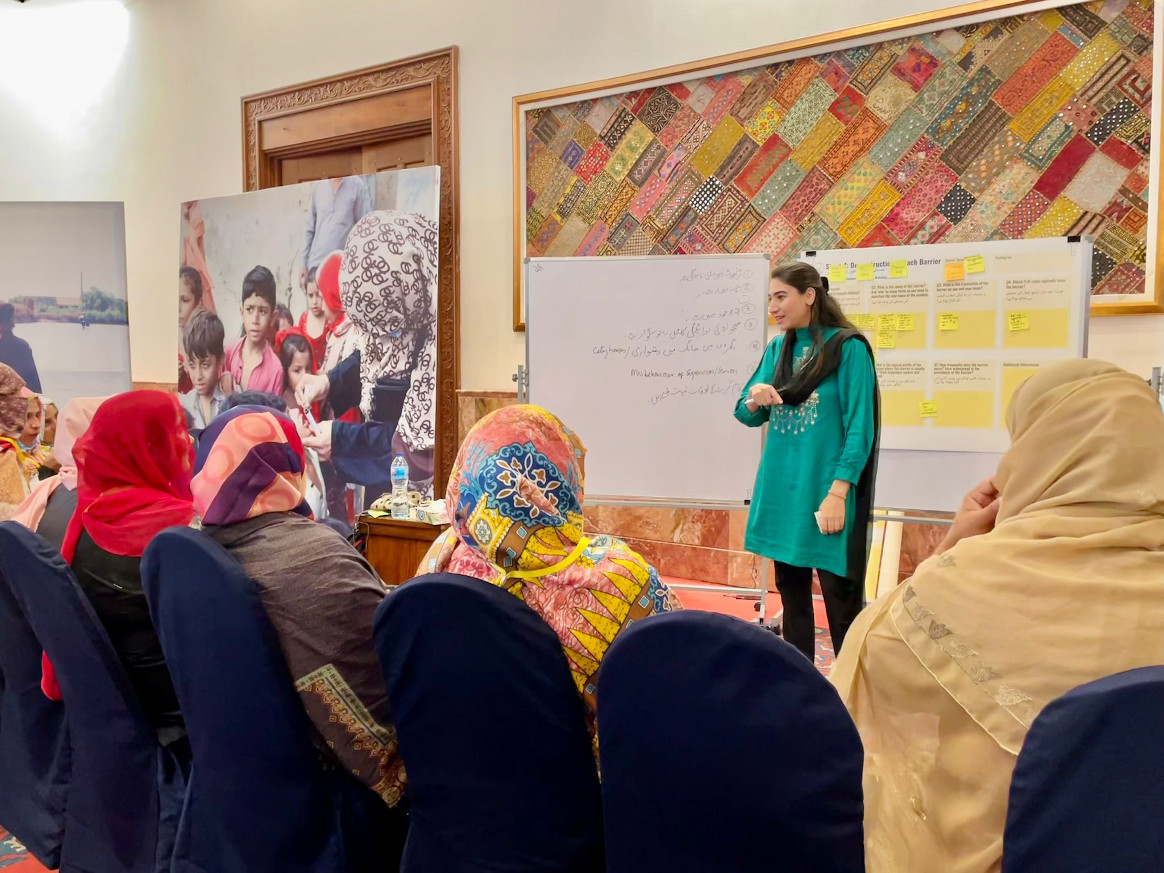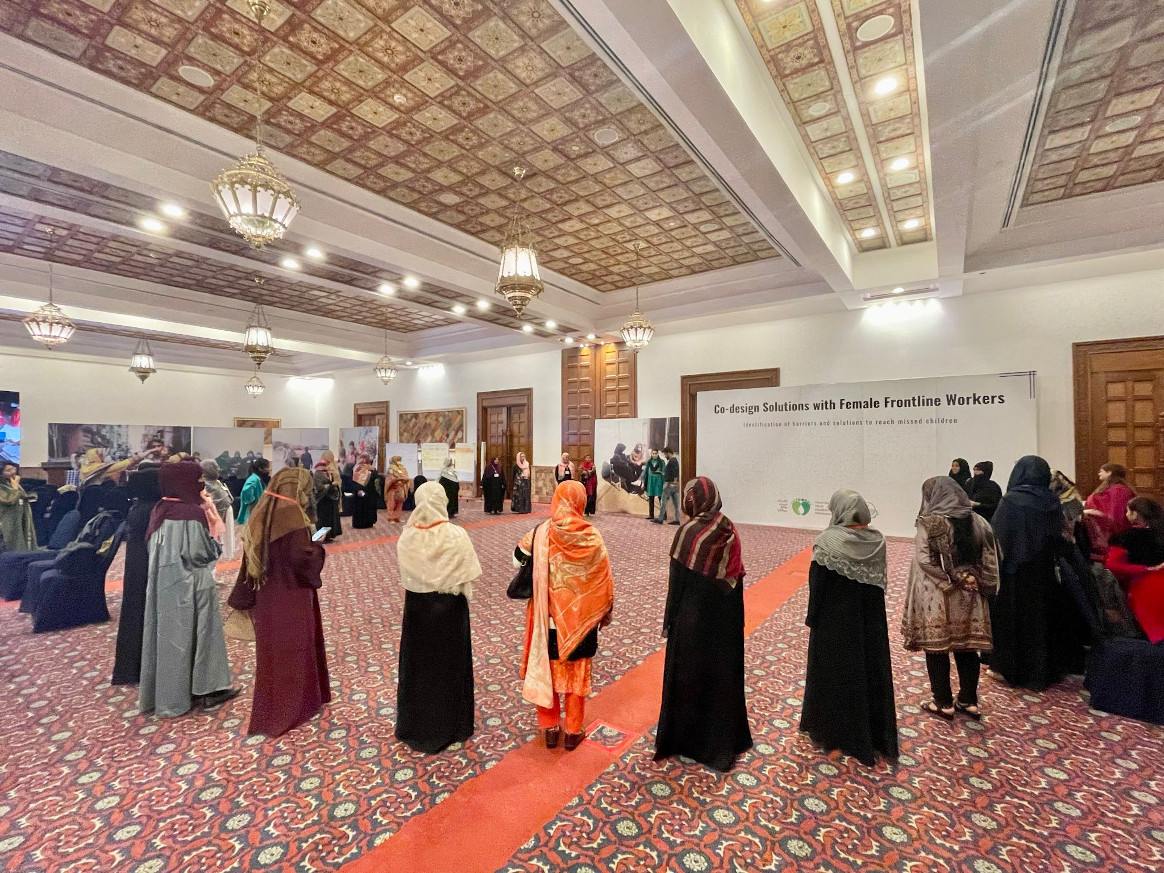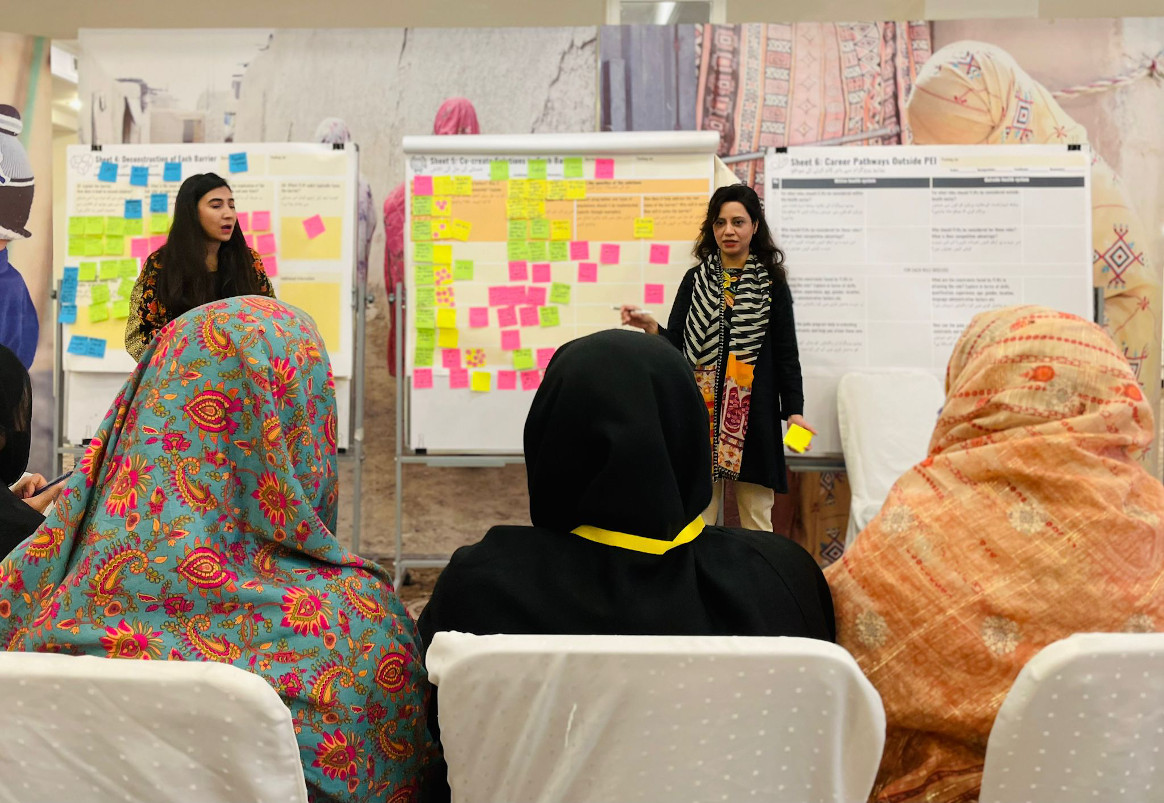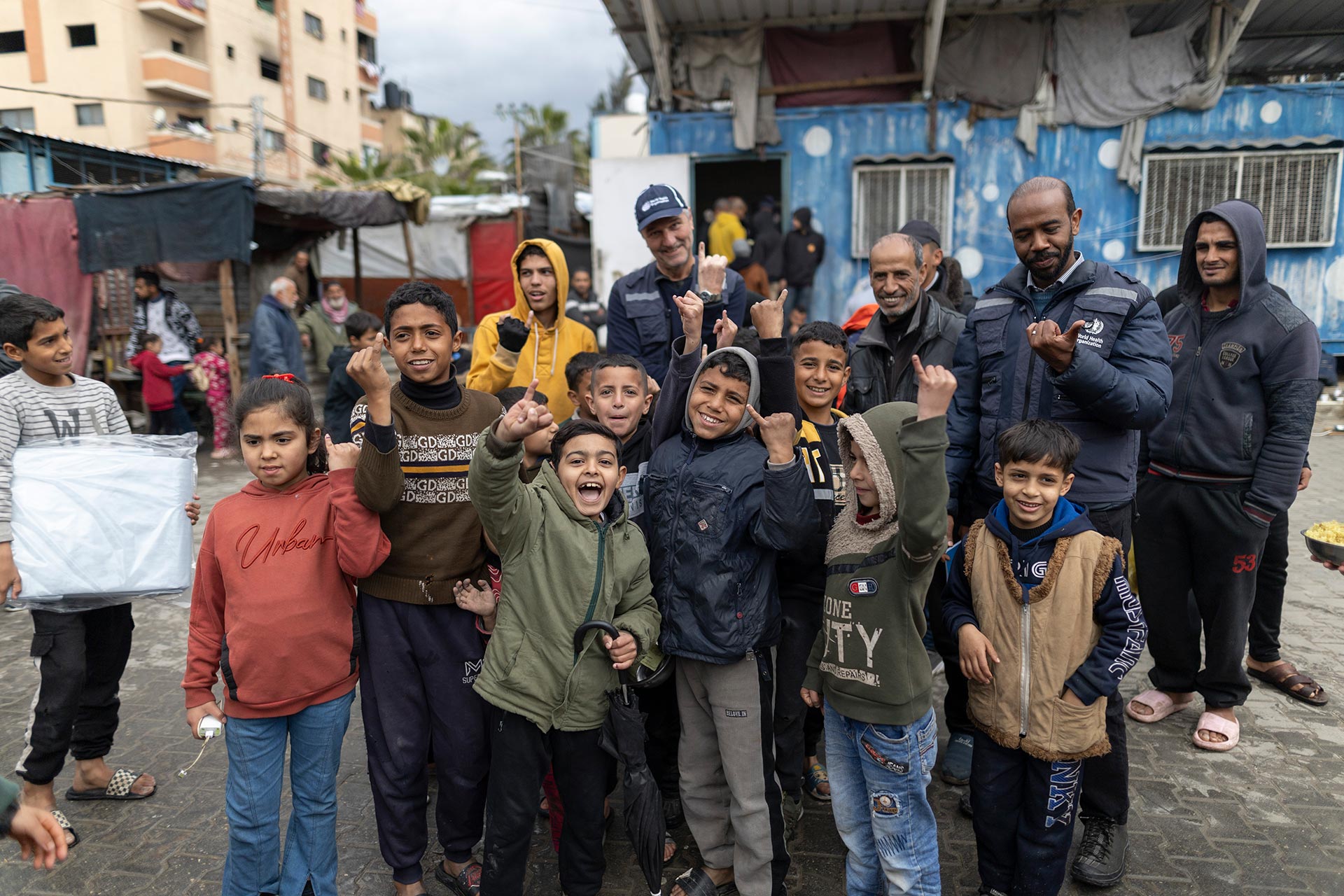
ISLAMABAD – Poultry farming, EPI technicians, creative writing, midwifery, embroidery, online businesses: it’s a room filled with possibilities and dreams when women health workers come together to imagine their lives in a polio-free Pakistan.
These ambitions surface during the workshops the Pakistan Polio Programme initiated last year, as part of a unique project to actively listen to female frontline workers in the areas at highest risk for poliovirus transmission across the country.
The initiative used a bottom-up, data-informed approach to better understand the experiences of women on the frontlines and hear their ideas for how the programme can better support them to do their jobs safely and effectively. And came with a prior promise: leadership from all partners at the Emergency Operations Centres were to review – and implement – workable solutions.
This systematic listening process, which began in July 2022 and concluded last week, was done in two parts: First, an independent research company was brought on to conduct more than 2,600 randomized, anonymous surveys with polio frontline workers across Pakistan to understand their unique challenges and experiences in the field. After this, based on the results of these surveys, 14 workshops were designed to hear from women frontline workers themselves on what they think are the solutions to the challenges they face.
Female health workers from the polio endemic districts of Bannu, DI Khan, Lakki Marwat and Tank in southern Khyber Pakhtunkhwa to the geographically challenging terrains of Chaman, Quetta and Killa Abdullah in Balochistan to Punjab in central Pakistan to Sindh in the south of the country to the capital city of Islamabad were brought together in this series of workshops.

The workshops were also moderated by a third party to allow for open and honest discussions, and carefully curated to create spaces where, for the first time, the women were the chief guests, they were the people who mattered most, while everyone else had one job: to listen.
“When you get respect, you get everything. It’s the first time that we have talked, and other people have listened,” says Fauzia Naseem, an Area-In-Charge from Chaman.
As each of the two-day workshops finished, there was excitement, energy and almost a sense of disbelief that hours had been dedicated to listening to them. “I’ve been here since 2017 and no one has ever really asked us what we think. Otherwise we are only told where to go and what to do. Today I feel like what we say matters,” says Samreen, a polio worker, from Tank.
“This is a very special project – and a very insightful one too. It offers us the opportunity to gain from the wealth of knowledge of the polio programme’s frontline staff. For the very first time, the people who actually do the work of delivering the vaccine to a child have been systematically asked how they think it should be done. We are currently looking into their suggested solutions and seeing which are implementable and can be taken forward,” said Dr Shahzad Baig, the Coordinator of the National Emergency Operations Centre in Islamabad.
“For many women, this is the first time they are together to just talk to each other, hear from each other, take a selfie and be in a space where they have the right to simple joys that they otherwise may not have access to. The workshops for women from southern Khyber Pakhtunkhwa were particularly special. These were held in Islamabad and for many women, this was the first time they had visited the country’s capital city. Their excitement and sheer joy was infectious. It lit up the room,” said Dr Atiya Abro, Deputy Director Ministry of National Health Services.

The last session in all workshops was dedicated to listening and understanding the women’s diverse interests in other career pathways after polio, and what skills or support the workers felt would be needed for them to transition into these jobs in the future.
This initiative was coordinated by the Pakistan Polio Programme’s National Gender Group, comprised of representatives from the government and partner agencies including WHO, UNICEF, BMGF and N-STOP.
“Having the opportunity to listen and give center stage to these women has been a true privilege. It’s encouraging to see such strong commitment from Pakistan programme leadership to support these female health workers – not only in their work toward our collective goal of eradicating polio, but also to facilitate transitions into other potential livelihood opportunities in the future. We look forward to the next phases of this exciting initiative as well,” said Sang-Hee Min, Senior Programme Officer, Bill & Melinda Gates Foundation and member of the National Gender Group.
“Polio teams are a valuable asset to our country,” said Dr Baig. “It is very important to me that when we finish polio from Pakistan, we don’t just pack up and leave but utilize this incredible workforce. We build systems and create opportunities to serve the workforce, a majority of them women, and find some way, however small, in giving back to the people who have worked tirelessly to protect the children of our country.”
By Zehra Abid,
Communications Officer, WHO Pakistan



